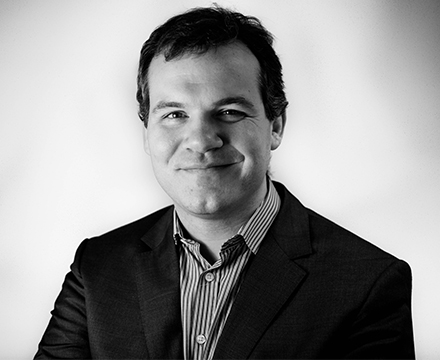Stop Food Waste Day Q&A: Marc Zornes
- Can you describe how Winnow is working with Compass Group – and in what countries - to make an impact in helping to reduce food waste?
Compass has been working together with us for four years to solve the issue of food waste and run its operations more efficiently, profitably and sustainably.
We connect commercial kitchens to the cloud, allowing them to record and analyse exactly what is put in the bin. This gives chefs the information necessary to drive improvements in their production processes to cut food waste in half, saving money and reducing their environmental footprint.
Compass Group was one of Winnow’s first customers and has been our closest partner in helping us develop and refine our technology. Working together with Winnow, Compass was able to reduce food waste by more than 50% across the UK & Ireland business and 38% globally.
Winnow has been implemented across all key areas of Compass’ business including staff restaurants, universities, military bases and hospitals. Our work with Compass Group has shown that sites which take action to measure and monitor waste can cut food waste by 50% or more by value while addressing a major environmental issue. As a result, we are now live in Compass sites internationally: UK, Ireland, Singapore, Hong Kong, China, UAE and trialling in Canada in a couple of weeks.
By addressing the issue of food waste, Compass is leading the way on how companies should address this challenge.
- What motivates your personal interest in sustainability and food waste reduction?
While at McKinsey, I co-authored a significant research paper on resource productivity. I was struck by the food waste statistics when I first learned about them: one third of all food is wasted from farm to fork, and if food waste was a country, it would be the third largest emitter of Greenhouse Gases in the world behind the USA and China.
I believe that food is too valuable to waste, and that technology can transform the way we use food. What gets measured gets managed, and by using data intelligently kitchens can be more efficient. Reducing food waste will save money and lower the environmental impact of food production. Food waste costs the hospitality and foodservice sector over $100bn globally. With Winnow we have been working for the last four years to solve this enormous problem for both the sector and for society as a whole.
- Can you share a story about a food waste hero who inspired you?
I am really inspired by all the innovative and forward-looking businesses who decided to be part of our journey and by doing so they are changing the way kitchens around the world are run forever. Together with them we are leading the charge in the war to reduce food waste and have achieved amazing results. Together we are saving 23 meals every minute from being wasted, which is incredible.
My real heroes are the chefs that we work with who make a change every day and inspire others to do the same. Massimo Bottra, for example, is showing the world how to take food that would have been wasted and turning into a beautiful meal that brings people of all walks of life around a table together.
- What change(s) have you made, personally, to be more mindful?
I am really conscious about not over-buying food and planning ahead for the meals I am preparing. I am trying to use each ingredient to its fullest and most of the time I do not follow recipes to the letter, just try to use what I have. It is much more fun and allows you to unleash your creativity.
- What will it take for the UK, and society in general, to make food waste a priority?
We need to start thinking about food waste as an opportunity rather than as a problem. It takes investment and time but the potential economic, environmental and social benefits are huge. Addressing food waste systematically and with the right tools can be transformative and we are excited to see the global foodservice market waking up to the huge opportunity that addressing food waste presents.


